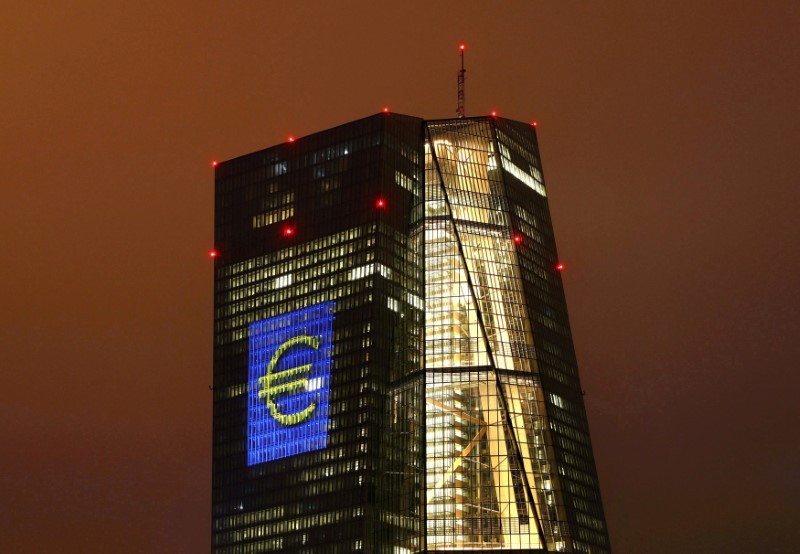By Philip Blenkinsop
BRUSSELS (Reuters) - Euro zone wages grew at their fastest rate in two years in the second quarter, data released on Friday showed, increasing the chances that the European Central Bank will set out plans next month to rein in its economic stimulus.
Hourly labor costs rose by 1.8 percent in the April-June period, from a revised 1.4 percent in the first quarter, its highest growth since the first quarter of 2016, EU statistics office Eurostat said.
Wages were 2.0 percent higher year-on-year in the second quarter from 1.3 percent in the first, the highest rate since the first quarter of 2015.
Weak consumer price inflation is a particular problem for the ECB. It has undershot its inflation target - close to but under 2 percent - for more than four years despite unprecedented stimulus and will not reach its goal before the end of the decade. The rate was 1.5 percent in August.
It is now debating whether to ease back on stimulus, a decision likely to come in October, accepting that more patience is needed to lift inflation. Capital Economics said the labor- cost data reinforced its view that the ECB would set out plans next month to taper its assets purchases in the first nine months of 2018.
The ECB is keeping a close eye on wages, hoping that robust economic growth and rapid job creation will finally push earnings higher and give inflation a badly needed boost.
ING economist Bert Colijn said in a note that seasonally adjusted data only showed growth in wages accelerated to 1.8 from 1.6 percent - not a sharp jump but at least an indication that economic improvements were leading prices to rise.
"With an important decision about tapering ahead in October, this will be a welcome sign that pipeline inflation pressures are at least improving," Colijn said.
Although employment has increased by nearly seven million since its trough in 2013, wage growth has been barely visible for years, a puzzling development for policymakers that suggests sizable hidden unemployment.
It may also signal that globalization has diminished central banks’ control over inflation as supply, demand and labor markets become international.
Wage talks by IG Metall, - with 2.3 million workers, Germany’s biggest union - will be keenly watched by policymakers, since its agreement will influence wage setting across several key sectors in the euro zone’s biggest economy. The union will publish its initial demands in October, but no deal is expected until early next year.
For full details of Eurostat data click on:

http://ec.europa.eu/eurostat
(Additional reporting Balazs Koranyi, editing by Larry King)